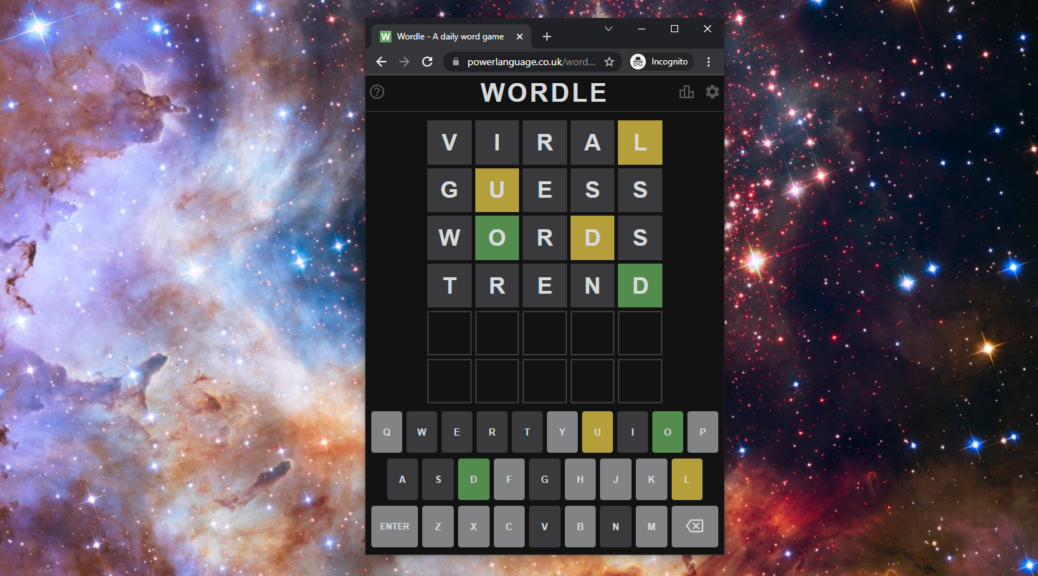It’s so refreshing that the latest viral phenomenon is Wordle, a homegrown internet minigame about guessing words.
No one can really predict the virality (virulence?) of a concept, but Wordle sure has the makings for uncontrolled community spread. It’s a well-structured minigame. It’s simple to understand and play, its only prerequisites being English literacy and an internet browser. It comes in digestible daily chunks for periodic and anticipated engagement. It has balanced difficulty: 4 letters could be difficult to localize but 6 letters may enable too much variation; and 6 guesses allows enough space but applies tangible stakes. Its instantly recognizable green emoji sharing format with the gray, yellow, and green boxes is the perfect infectious vector. And, of course, it’s free without ads.
Katie and I play too. We solve crosswords weekly, and this Wordle craze is like the spiritual successor to our NYT Spelling Bee phase last year. It’s often my last activity before bedtime. We got started three weeks ago: “Have you heard about Wordle?” Katie had said. “Everyone at the office is talking about it.” A floor at a major bank abuzz about the hot topic of an internet minigame? How marvelous!
Continue reading Rooting for Wordle